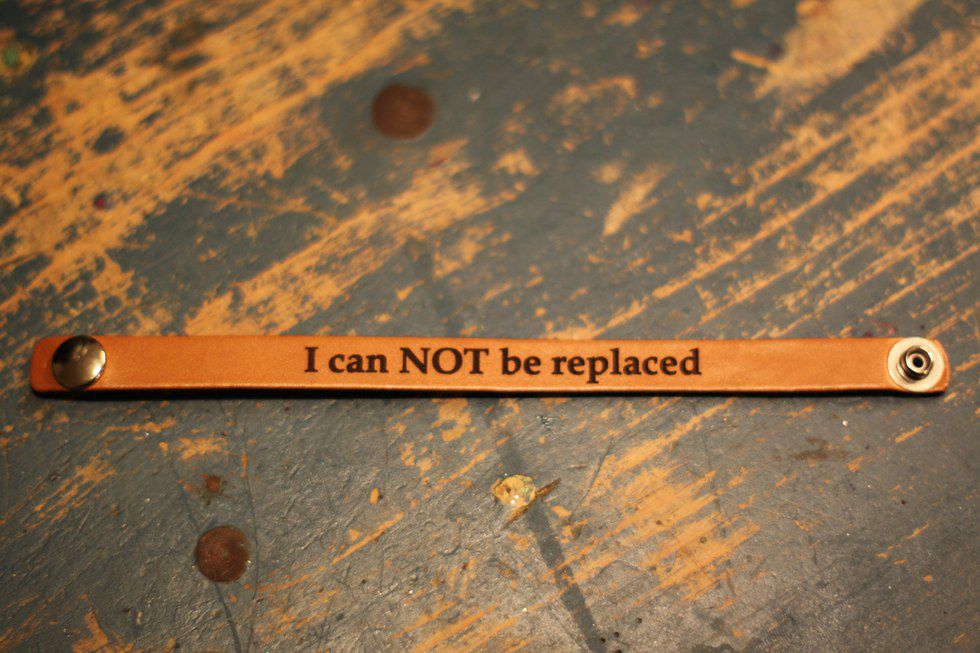September is Suicide prevention month. If you or a friend need help, here are some tips. Please note that I am far from a professional. I know based on personal experiences what it feels like to be on both sides. I know how dark it can get, I've been there. I have seen the aftermath of these feelings, and what they can do the people around you. I've tried to reach out to my friends who were struggling, just how they have reached out to me. There is nothing to be ashamed of. Below is some ways that you can help. First and for most I want you to know that you are worth it. I know that there isn't anyone in this world that can tell you how fine it is, I know that there isn't anyone who can make it better. However, reaching out to someone can make a huge difference. Stay strong, because people love you. If you are a friend to someone who is struggling, open your ears and most importantly your heart.
I just want to point out some statistics before I begin. According to The American Foundation for Suicide Prevention "Each year 42,773 Americans by suicide" (American Foundation for Suicide Prevention 2016). The American Foundation for Suicide Prevention also mentions that "Suicide is the 10th leading cause of death in the US" (American Foundation for Suicide Prevention 2016). We can't ignore these statistics any longer. We need to reach out and provide help for those in need. We need to treat mental illness just like we would any other illness. I know that this has been said before, but it's critical!
When individuals suffer from suicidal thoughts, they feel weak. Let me tell you how far from the truth this idea is. You are not weak, you should not be ashamed. Something in your brain is causing you to struggle. What we have to do as friends and sufferers is seek help. We must speak up, we can not stay silent.
Do you want to know a surprising fact? The American Foundation for Suicide Prevention says that "Men die by suicide 3.5x more often than women" (American Foundation for Suicide Prevention 2016). Why could this be? It seems that we undermine the feelings of men. Men are less likely to talk about how they are feeling. They are taught at a young age to ignore their feelings. Men should be able to speak about how they are feeling, before their feelings get worse. I know, it's not that easy, but please help your friend out. Do not judge their problems based on gender, mental illness does not discriminate. Actually, "Females attempt suicide three times more often than males. As with suicide deaths, rates of attempted suicide deaths, rates of attempted suicide vary considerably among demographic groups. While males are 4 times more likely than females to die by suicide, females attempt suicide 3 times as often as males" (American Foundation for Suicide Prevention 2016). As you can see, both genders struggle with suicidal thoughts and intentions. However, males are more likely to die during a suicide attempt.
Another important piece of information is that these thoughts do not discriminate on race either. "In 2014, the highest U.S. suicide rate (14.7) was among Whites and the second highest rate (10.9) was among American Indians and Alaska Natives. Much lower and roughly similar rates were found among Hispanics (6.3), Asians and Pacific Islanders (5.9), and African Americans (5.5)" (American Foundation for Suicide Prevention 2016).
Here is one final statistic before I begin. "494,169 people visited a hospital for injuries due to self-harm. This number suggests that approximately 12 people harm themselves for every reported death by suicide" (American Foundation for Suicide Prevention 2016). Remember that self-harm is also an issue. It's used as a coping mechanism and can become an addiction.
As we can see, suicidal thoughts are not discriminatory. They can effect anybody at anytime. Below is some tips for helping those in need.
1. LISTEN.
It is not your job judge. When someone is struggling with suicidal thoughts, the last thing they want is to be judged. When a person tells you how they are feeling, they are taking an important step. Thank them for telling you.
2. Stay away from personal opinion.
I know that you care about your friend, and are worried about them at this point in time. However, you are not a professional. Just take the time to again listen. It is not your job to analyze why they are feeling this way. Sometimes there isn't even a reason.
3. Suggest a professional.
Leave the advice to the professionals. Your friend needs someone who can provide them with the advice that they need. Their counselor or therapist will give them the best treatment that they can.
4. Call someone.
If your friend is in danger, do not be afraid to call the police. If you are in college you can talk to your RA, or call campus police. These individuals are there to help you. They have been trained to deal with these situations before. If your friend gets upset, you should stay calm. You know that getting help is what's best for them.
5. Don't Give Up.
If your friend relapses, don't give up on them. Listen. However, do not overwhelm them. I know you are worried about them , but the best thing for them is sometimes alone time. Also, don't overwhelm yourself. If something negative happens, it is not your fault. Your job is to reach out and be there, however you are not a professional.
My final advice is to be a friend. Sometimes when someone is stuck in this negative mindset, it seems impossible to get through to them. Stay strong and just be there. I can not stress enough the importance of being there.
*Make sure you know your campus resources, or your local resources. Below I provided links for national organizations that can help you. There is also a number for an emergency hotline. If you can do one think for me, please just open an ear.
One last piece of advice: There are apps that can help with self-harm, and or suicidal thoughts. Keep one on your phone just in case.
To Write Love On Her Arms:https://twloha.com/find-help/local-resources/
The National Suicide Prevention Hotline:http://www.suicidepreventionlifeline.org/
American Foundation For Suicide Prevention:https://afsp.org/find-support/
The Trevor Project: http://www.thetrevorproject.org/pages/get-help-now
Crisis Text Line: http://www.crisistextline.org/
References
American Foundation for Suicide Prevention . (2016). Suicide Statistics. Retrieved from American Foundation For Suicide Prevention : https://afsp.org/about-suicide/suicide-statistics/






















